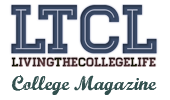Why Selling Your Used Textbooks Might Soon be Illegal


our ability to resell books and buy them at a cheaper price may soon come to a startling halt, and there is just one student who stands between the innocent and the guilty, the college students and the overpriced publishers.
Right now, the United States Supreme Court is pinning a young graduate, Supap Kirtsaeng, from the University of Southern California, against John Wiley & Sons, Inc., which is one of the largest book publishers in the world currently. Kirtsaeng was reported as having made $37,000 in profits to pay off his tuition by buying textbooks from his native homeland, Thailand, and selling them online for a profit here in the U.S. This has been said to be the highest-stakes intellectual property case of the year, if not the decade.
This will debate the “First Sale” doctrine. Ars Technica states:
“First sale” is the rule that allows owners to resell, lend out, or give away copyrighted goods without interference. Along with fair use, it’s the most important limitation on copyright. So Kirtsaeng’s cause has drawn a wide array of allies to his side. These include the biggest online marketplaces like eBay, brick-and-mortar music and game retailers, and Goodwill—all concerned they may lose their right to freely sell used goods. Even libraries are concerned their right to lend out books bought abroad could be inhibited.
Kirtsaeng v. Wiley is a fight that will affect some of the biggest industries that are staples to the global economy. The ramifications will be seen in publishing companies, retailers, entertainment companies, manufacturers and consumers if Wiley was to win.

Photo from Revolution Books NYC
Kirtsaeng was originally sued for copyright infringement and lost; upon losing, he was ordered to pay $600,000 to the publishing company – a little over 16 times what he earned reselling the books online. The appeal by Kirtsaeng is what’s being heard in the Supreme Court right now.
The case stems, in a sense, from the Copyright Act in 1976 but that act was intended to protect publishers, movie makers, musicmakers and other copyright owners from people stealing their items without paying. The current question is whether or not Kirtsaeng was in violation of that act.
The Facts
- Supap Kirtsaeng was importing John Wiley & Sons Inc. publisher’s copyrighted textbooks from his native country of Thailand and selling them in the United States for a profit.
- Kirtsaeng was ordered to pay $600,000 to the publisher in the first court case.
- This practice of buying cheap items and selling them for more is called the gray market.
- The problem with this case is that it pits business against business.
- The motion picture, music, software and publishing industries are supporting Wiley, arguing that the practice by Kirtsaeng illegally undercuts their U.S. sales.
- Libraries and second-hand stores as well as companies such as eBay are all backing Kirtsaeng.
- The companies and institutions affected by the resale-rights formed a coalition called the “Owners’ Rights Initiative.” The coalition is trying to inform the public that the right to resell, lend out and give away books, movies and music is under threat with this case.
- The legal issue is whether copyrighted works made and purchased abroad can then be bought and sold within the United States without the copyright owner’s permission.
- Kirtsaeng’s lawyers claim his gross revenue from the Wiley sales was just $37,000.
Say a tearful goodbye to cheap textbooks
This case could potentially stop all sales of items that we, as customers, don’t have the copyrights to. Selling back textbooks at the end of the semester? Forget it. Sell unwanted apartment furniture on eBay? Not going to happen. Sell your old iPhone to somebody else? That would technically be illegal if Wiley & Sons, Inc. wins this case.
The question is whether this will be carried out to its technical meaning. The other thought in question is whether the reasoning behind the punishment of Kirtsaeng will transfer to companies that manufacture goods abroad.
If Wiley & Sons Inc. wins and the law is taken to its logical extreme, it would prevent libraries from lending out books, people from reselling items, even at garage sales, and it could stop museums from displaying artwork all because it would be in violation of the copyright owner’s rights.
A ruling is expected in coming months.
Share your opinion on who you think is in the right, Kirtsaeng or John Wiley & Sons, Inc. by leaving a comment below.



I go with, I bought it, I own it and can do anything I want with it! Thank you! Now SCOTUS rule in my favor!
Honestly… I think the kid should lose this case. The authors that actually wrote the content are losing money from people importing used books. If they lose money then they will stop writing books!